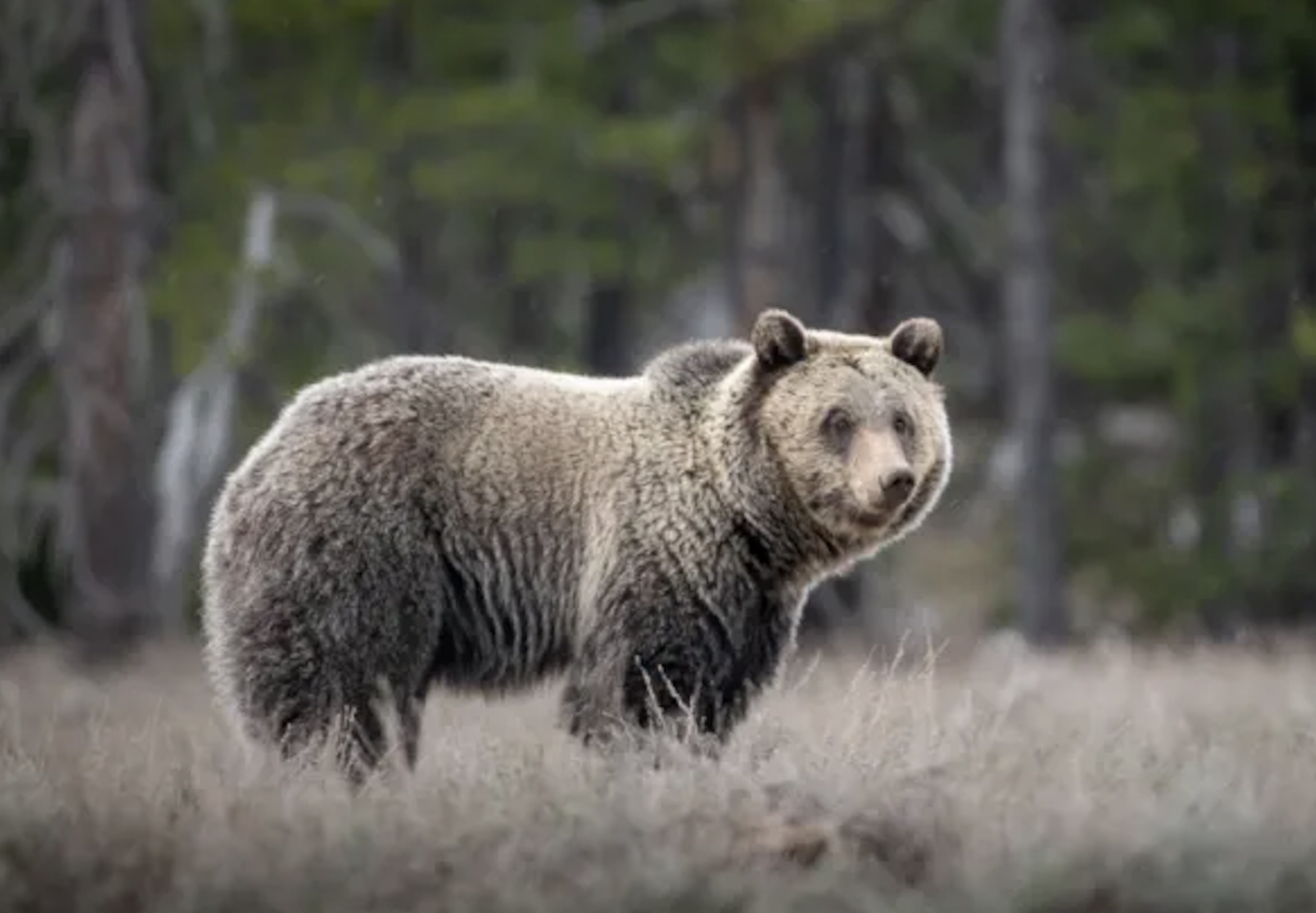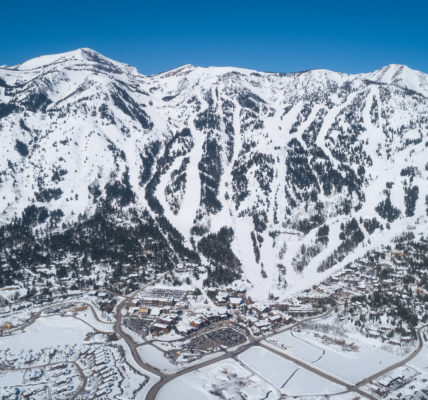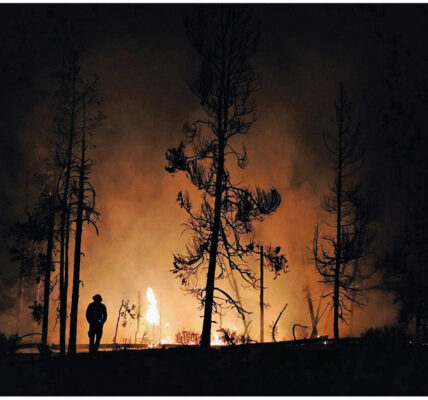Grizzly ‘delisting’ back on the table as feds reconsider state management

By Mike Koshmrl, WyoFile.com
Federal wildlife officials on Friday morning announced they will again consider surrendering management of the Greater Yellowstone Ecosystem’s grizzly bears, giving jurisdiction to the states.
The news came in the form of a “90-day finding” in response to petitions submitted by Wyoming, Montana and Idaho early last year. Federal officials were persuaded by Montana and Wyoming’s petitions, but told Idaho wildlife managers their petition did not contain “substantial, credible information” and to go back to the drawing board.
It’s Fish and Wildlife Service’s third attempt in 16 years to cease Endangered Species Act protections for the isolated population of grizzlies that dwell in the tri-state Yellowstone region. Additionally, the agency is looking into delisting the Northern Continental Divide’s population of northern Montana-dwelling grizzlies.
The immediate next step, the service announced: A “comprehensive status review” of grizzly populations in the Greater Yellowstone Ecosystem and the Northern Continental Divide Ecosystem. The analysis will use the “best available scientific and commercial data.”
Reactions to the preliminary grizzly bear decision poured in Friday.
Former U.S. Fish and Wildlife Service director Jamie Rappaport Clark, who now presides over Defenders of Wildlife, called the agency’s move “premature.
“… delisting would condemn these vitally important animals to the whim of current state politics in Montana, Wyoming and Idaho where they are openly hostile to predator species like grizzly bears,” Clark said in a statement.
U.S. Sen. Cynthia Lummis, meanwhile, branded the announcement “welcome news for Wyoming” in a press release. “I’m hopeful the decision to delist the grizzly is not impacted by out-of-state environmental extremists who don’t truly understand the science.”
At the population’s nadir in the 1970s, grizzly bears were seldom seen outside of Yellowstone National Park and estimated numbers in the region dipped as low as 136. Since then, numbers of the slow-reproducing ursine have grown by 4% to 7% a year. The population eclipsed recovery goals around the turn of the century and now exceeds an estimated 1,000 grizzlies. Although grizzly recovery can be painted as a success story, just a fraction of the estimated 50,000 bears estimated to exist before the western settlement era are found on the landscape today.
Debates have raged over whether the states are well suited to manage the federally threatened species, a controversy that stems largely from prior state plans to reduce the population with hunting. Lawsuits from environmental advocacy groups have overturned the two prior attempts at delisting Yellowstone-region grizzlies. In 2007, the decision hinged on federal wildlife managers’ lack of understanding of how the decline of whitebark pine — its seeds are a major grizzly food source — would impact the species. In 2017, the federal government’s second attempt to cede grizzly jurisdiction to the states was overturned on the basis of concerns about genetic diversity and what happens when population numbers are “recalibrated” by scientists changing the way they count bears.
Since then the three Northern Rocky states have forged a pact, outlining how they’ll cooperate and attempting to address the court’s concerns. In response to genetic concerns, for example, the states pledged to translocate at least two grizzly bears from outside the Greater Yellowstone Ecosystem into the region if natural migration doesn’t occur first.
Wyoming pledged to maintain a target population of at least 932 Yellowstone-region grizzly bears — the 2002-2019 average — in its petition. Hunting would be halted if numbers ever fall below 831 bears, the document stated.
A long process — an in-depth status review, proposed rule, final rule and multiple periods of public input — will precede any potential grizzly bear jurisdiction shift.
Game and Fish Director Brian Nesvik’s agency is ready to manage grizzly bears “at a moment’s notice,” he said in a press release.
“Game and Fish has a strong track record of managing grizzly bears during the times they have been delisted in the past,” Nesvik said.
But the Center for Biological Diversity environmental attorney Andrea Zaccardi viewed the states’ track records through the opposite lens.
“After approving the all-out slaughter of wolves, Montana officials have proven they can’t be trusted to make science-based wildlife decisions,” Zaccardi said. “Our nation’s beloved grizzlies deserve better.”Fish and Wildlife will start accepting public comments on the 90-day finding document starting Monday. Input will inform the in-depth status review. Submit comments at regulations.gov, docket number: FWS-R6-ES-2022-0150.






